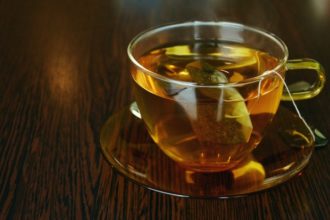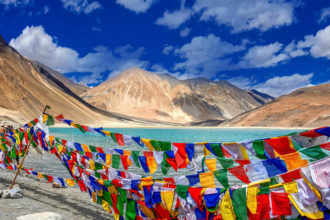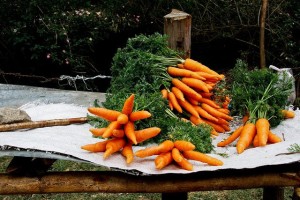Monsoon showers are welcome as a relief from the scorching heat of the sun after the summer season. The season is also accompanied with a number of health problems. Most water and food borne diseases occur in the monsoons when the atmosphere is polluted and dirty. They are the cause of different viral, bacterial and fungal infections affecting the skin, respiratory system and digestive system. Common diseases like cough cold, fever, diarrhea, and indigestion are constantly troubling the people. The immune and digestive system is highly affected by the dampness and humidity of the weather.
Health problems related to food and water are always at a rise during this season. Number of germs and bacteria breed in water logged areas and damp places. This situation requires a change in the living style as well in the type of food eaten. The body can be kept healthy by eating the right kind of food during monsoons.
Food safety tips during the monsoon season
Water Sufficient water need to be consumed during rains to avoid dehydration. Switch to boiled or filtered water during the rainy season. Avoid dipping dirty hands in drinking water and drink water in safe places where it is filtered or boiled. If filtered water is not possible take coconut water or mineral water.
Food taking the right food during monsoon plays a very important role in keeping the body healthy during monsoon season. Special care is required in selecting, cooking and storing the food stuff during monsoons.
Tips to eat healthy in monsoon
- Monsoon is the time to eat freshly cut and cooked food in a hygienic manner. Do not buy cut fruits and vegetables from the market or even eat salads in places where large scale cooking is done like in parties and restaurants.
- Raw vegetables, meats and other raw material must be washed carefully in water before cooking.
- Best vegetables to include in the diet during this season are bitter gourd (karela), neem, haldi (turmeric) and methi (fenugreek) to avoid bacterial infections.
- Other vegetables like cabbage cauliflower, spinach and beans should be washed in salt water before cooking to kill the germs thriving on them.
- While travelling it is advised to opt for whole fruits like peaches, pear bananas and litchisor dry fruits andof course home cooked food.
- Large quantity of fruits and vegetables should not be stored in the fridge and they tend to rot in a day or two.
- Cooked food must be refrigerated as doom as possible after cooking. Leftover food should be kept covered and must be consumed soon.
- Lentils, chickpeas, oats and corn are the safest option during rains.
- Light home cooked foods prevent the body from several water and food borne diseases and boost the energy level in the body.
- Special attention must be given to storing of foods. Lentils and other food grains must be stored in dry places as there can be growth of fungus when stored in damp places.
- Take care about the protein mineral rich food in monsoon.
- Deep oil fried items are tempting in this monsoon .So avoid to take them regularly.
- Take the Moderately hot food instead of cool and too hot food.
- Choose grilled sandwiches instead of cold ones.
- Opt for hot foods like soup and cooked meals instead of cold and raw foods.
- Separate raw and cooked food both when preparing and storing.
- Street side food must be avoided specially in monsoon.
- Wash your hands while you handle the food items.
- Keep chopping blocks and worktops scrupulously clean.
- Keep food items in hygienic dry places. Not store the drinks with food items
- Cover all seeds and grains with anti-bacterial and anti-fungal properties during the monsoon. At the same time make sure to wash them well before consuming to avoid flatulence and discomfort.
- Meat should not be stored in the fridge above other foods so that it does not drip.
- Foods should not sit in the room without the lid as it attracts bugs.
Follow these guidelines to remain safe and healthy during monsoons! Remember, prevention is better than cure.
Foods to avoid during the monsoon season
- Fruit juices, lassie, curd and sugar cane juice must be avoided.
- Some foods that lead to indigestion should also be avoided. These include potatoes, sprouted grains, pigeon pea and cluster beans
- Chats, samosa and golgappas from the vendors need to be avoided.
- Fatty and fried foods like samosas, pakodas and burgers and foods with high salt content like pickles and chutneys must also be avoided.
- Heavy oils like mustard and sesame oils must be substituted with dry oils like corn and olive oils which are easily digestible.
- Consumption of raw food is the most dangerous thing during rains because there are certain enzymes in raw food which are difficult to be digested by the digestive system. Raw foods are moist and they become an ideal place for the growth of bacteria and other germs.
- Salads and leafy vegetables must be avoided especially in places where food is cooked at a large scale like big parties and restaurants. These cut vegetable get contaminated with disease producing germs at a faster rate.
- Fruits like watermelon, cucumber and other watery fruits should not be chopped and eaten from open vendors in the market.
- Non-vegetarian foods like raw eggs and sea food must be avoided in the rainy season. Monsoon is the breeding season for some fishes and prawns which can cause severe stomach infections. One must be very cautious while buying these fishes.
from Beauty & Health Tips http://ift.tt/1H0Pxcq
via IFTTT




